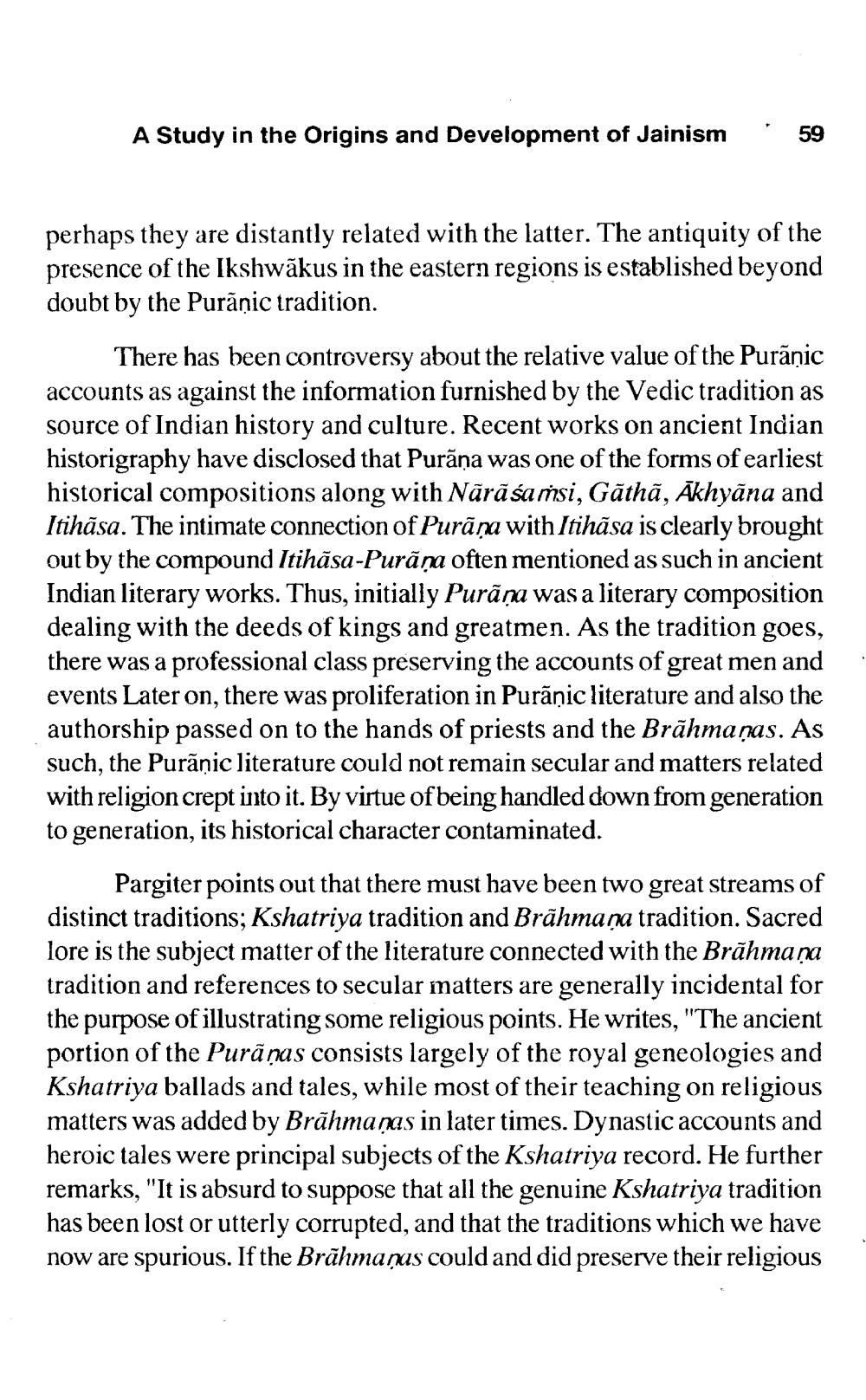________________
A Study in the Origins and Development of Jainism
: 59
perhaps they are distantly related with the latter. The antiquity of the presence of the Ikshwākus in the eastern regions is established beyond doubt by the Purāṇic tradition.
There has been controversy about the relative value of the Purăņic accounts as against the information furnished by the Vedic tradition as source of Indian history and culture. Recent works on ancient Indian historigraphy have disclosed that Purīna was one of the forms of earliest historical compositions along with Nārāśaṁsi, Gāthā, Akhyāna and Itihāsa. The intimate connection of Purāņa with Itihāsa is clearly brought out by the compound Itihăsa-Purāņa often mentioned as such in ancient Indian literary works. Thus, initially Purāsa was a literary composition dealing with the deeds of kings and greatmen. As the tradition goes, there was a professional class preserving the accounts of great men and events Later on, there was proliferation in Purāņic literature and also the authorship passed on to the hands of priests and the Brāhmaṇas. As such, the Purāņic literature could not remain secular and matters related with religion crept into it. By virtue of being handled down from generation to generation, its historical character contaminated.
Pargiter points out that there must have been two great streams of distinct traditions; Kshatriya tradition and Brāhmana tradition. Sacred lore is the subject matter of the literature connected with the Brāhmaṇa tradition and references to secular matters are generally incidental for the purpose of illustrating some religious points. He writes, "The ancient portion of the Purāņas consists largely of the royal geneologies and Kshatriya ballads and tales, while most of their teaching on religious matters was added by Brāhmaṇas in later times. Dynastic accounts and heroic tales were principal subjects of the Kshatriya record. He further remarks, "It is absurd to suppose that all the genuine Kshatriya tradition has been lost or utterly corrupted, and that the traditions which we have now are spurious. If the Brāhmaṇas could and did preserve their religious




